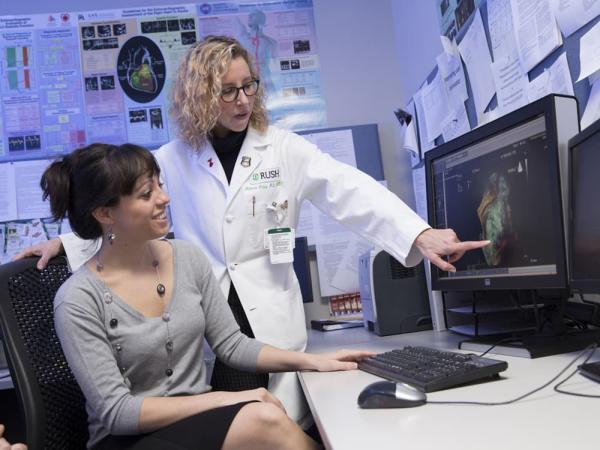
Rush University offers a broad range of fellowship programs to fit your interest and specialty. You’ll work in a team-based environment in our leading-edge medical center and other locations, providing care for diverse patient populations.
Learn more about our fellowship programs
- Acute Pain/Regional Anesthesia
- Addiction Medicine
- Adult Reconstructive Orthopedic Surgery
- Allergy and Immunology
- Andrology
- Body Imaging and Musculoskeletal Radiology
- Breast Imaging
- Cardiovascular Medicine
- Cardiothoracic Surgery
- Child and Adolescent Psychiatry
- Clinical Cardiac Electrophysiology
- Clinical Informatics
- Clinical Neurophysiology
- Complex Family Planning
- Consultation-Liaison Psychiatry
- Critical Care Medicine
- Cytopathology
- Endocrinology Diabetes and Metabolism
- Endovascular Neurosurgery
- Epilepsy
- Family Medicine
- Foot and Ankle Orthopedic Fellowship
- Gastroenterology and Hepatology
- General Surgical Pathology
- Geriatric Medicine
- Hand Surgery
- Headache Medicine
- Hematology-Oncology
- Hospice and Palliative Medicine (with Stroger Hospital)
- Infectious Diseases
- Interventional Cardiology
- Interventional Pulmonology
- Movement Disorders
- Neonatal-Perinatal Medicine
- Nephrology
- Neurocritical Care
- Neuroimmunology
- Neuromuscular Medicine
- Neuroradiology
- NeuroRhinology and Advanced Rhinology Fellowship
- Neurosurgery Spine
- Orthopedic Spine Surgery
- Pain Medicine
- Pediatric Endocrinology
- Pediatric Hematology-Oncology
- Primary Care Sports Medicine
- Pulmonary and Critical Care Medicine
- Rheumatology
- Shoulder and Elbow Surgery
- Sleep Medicine
- Sports Medicine
- Stereotactic and Functional Neurosurgery
- Transplant Hepatology
- Vascular and Endovascular Surgery
- Vascular and Interventional Radiology - Advanced Fellowship
- Vascular Neurology
- Vitreo-Retinal Surgery
